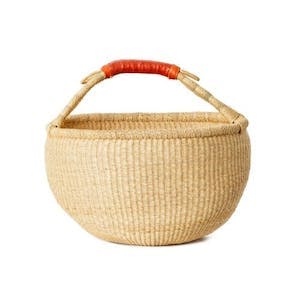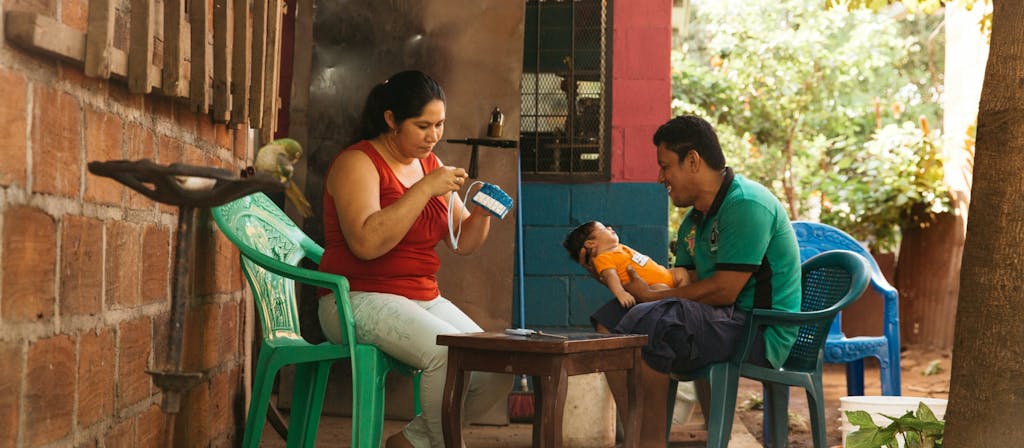In 2021, the world is still working to emerge from the global COVID-19 crisis. The pandemic has threatened the livelihoods of millions, and organizations like Food for the Hungry (FH) must keep the most vulnerable people in mind. We know that, as the pandemic threatens years of progress toward ending poverty, inequity is growing. In particular, gender inequality is a disturbing trend that is challenging global human rights. Complications of the pandemic now threaten to undo years of progress.
Gender Inequality in 2021
Each year, International Women’s Day reminds the world to celebrate the achievements of women and remember what still needs to be done. This year, it’s a sobering reminder that women and girls are affected by any crisis in unique ways.
COVID-19 has impacted women and girls in dramatic ways. There’s the loss of jobs and access to reliable income. The pandemic has increased both domestic violence and the incidence of child marriages.
School closures, which have stretched on for for months on end, will have long-term impacts on the education of all students. For girls, the risks are especially grave. “Girls are especially at risk … of being the victims of violence, of being forced into a child marriage, of dropping out of school, of not having the opportunity to pursue their talents and dreams,” according to The New Humanitarian.
Women and girls are often at the center of FH’s programs. That is because we know that thriving women create thriving families, communities, workplaces, and countries. But COVID-19 puts women and girls at risk. That should remind us to continue fighting for women and girls to have access to basic resources, opportunities, education, and the chance to thrive!
Limited gains in gender equality and women’s rights made over the decades are in danger of being rolled back due to the COVID-19 pandemic.” – The UN Secretary-General
This year’s International Women’s Day theme is Choose to challenge, because “a challenged world is an alert world, and from challenge comes change.”
Here are a few ways that FH is challenging gender bias and exclusion. Let us share the reasons why we think these actions are important. Then will you join us alongside women and girls worldwide in taking action for equality?
Supporting Financial Literacy and Economic Empowerment
Financial decisions impact every part of a family’s wellbeing. And women are often responsible for making money stretch until the next paycheck or harvest season. Whether budgeting in order to afford healthy food or saving up for a new roof on the home, women make decisions about how to spend their household resources every day. Women are also entrepreneurs and key contributors to every economy. Their economic empowerment increases productivity, economic diversification, and income equality. And that benefits everyone!
However, millions of women also say that they do not know enough about finances. Without financial literacy, or the ability to understand and effectively use financial skills such as budgeting, women are less able to save or start their own businesses. These deficiencies also make them more vulnerable to deceptive or predatory financial practices. Lack of financial literacy is closely related to poverty and economic vulnerability. And women, who drop out of school at higher rates than their male counterparts, are less likely to have skills like literacy and numeracy (reading and counting), which impacts their ability to make wise decisions for themselves and their families.
FH chooses to challenge the prevailing economic disempowerment of women by equipping them with financial knowledge and skills. Savings groups, participation in financial literacy trainings, and adult literacy programs for women are first steps toward women making wise financial decisions, starting new enterprises, and saving for future goals.
Promoting Shared Decision Making
Power imbalances, stereotypes and unhealthy cultural norms have kept women and girls from becoming leaders or having their voices heard — in their homes, at a community level, and even more broadly. In the home as well as in businesses or government, women are frequently excluded from decision-making structures. And while women broadly express support for women’s rights, sometimes those same women find empowerment unattainable in their own homes or communities. While the proportion of women who participate in household decision making seems to have increased over time, there are millions of families in which boys are still perceived as more valuable, countries where women do not have property rights, and communities where boys receive greater resources and educational opportunities than girls.
Gender equality is good for everyone.
We know that as women’s education increases, infant mortality rates decrease. Abolishing harmful stereotypes about women, and about emotion as “weak” or “feminine,” allow men to more fully express their own feelings and demonstrate compassion, creativity, and tenderness towards others. And more diversity in workplaces and leadership positions creates productivity and reduces poverty rates.
FH programs challenge gender inequality. In every activity FH leads, we aim for equal or greater participation of women and girls. As we support education, we make sure that girls benefit. It’s important that women have access to knowledge and the opportunity to implement new skills. That’s why FH promotes the value of women and girls. We want to share about the positive power of men and women working together to accomplish shared goals.
Empowering Sustainable Change
At a local level, in communities that FH serves, many women are unaware of their rights. They may not have grown up being encouraged to chase their dreams or being told they are smart and capable. Without confidence or tangible skills to help them succeed, women often do not know how to change their lives for the better. They also tend to not realize how much their actions directly impact the wellbeing of their children.
Women can make a significant impact, especially when they build supportive relationships with each other. This helps them grow their sense of confidence and agency. It also helps them gain knowledge and skills that equip them to change their behaviors and routines.
One of FH’s most effective strategies for creating lasting, sustainable change involves Cascade Groups. These groups are circles of neighbors in a community. They are generally mothers who come together to learn, reach for goals, and support each other. The groups give women information to improve each family’s health and income. They also provide a safe place for women to share their stories, ask questions, and help one another.
Cascade Groups can teach how to handle a baby’s fever. Members discuss the most nutritious recipes to cook for a toddler. Sometimes mothers talk about parenting kids who are misbehaving. By discussing these topics and learning about financial practices and livelihoods strategies, women grow their confidence, learn about their rights, and build solidarity with other women.
As women gain knowledge, skills, and more social support, they accept the challenge of tackling some of the biggest issues that keep them in poverty.
Choose to Challenge Gender Inequality
This year’s theme for International Women’s Day is “choose to challenge.”
Every day, FH challenges the norms, beliefs, and behaviors that prevent women’s equality and keep them vulnerable. Will you join the fight against gender inequality? One way you can join the cause is by giving items from the women’s empowerment gift catalog. Here are some ideas:
- Give a hygiene kit for girls and ensure that young women can access hygiene products and attend school even when on their periods — preventing school absenteeism and lowering dropout rates.
- Women often collect water when it’s far away, and the trek can be long and dangerous. When you give the gift of a home well, it ensures that a family has clean water right outside of their home.
- Giving a sewing machine can provide the tool that a man or woman needs to start a new business and gain a reliable source of income.
How will you challenge gender inequality today?
Continue Reading
Photo Essay: Powerful Photos Show A Day in the Life of Women Around the World
7 Ways You Can Empower Girls on International Day of the Girl


